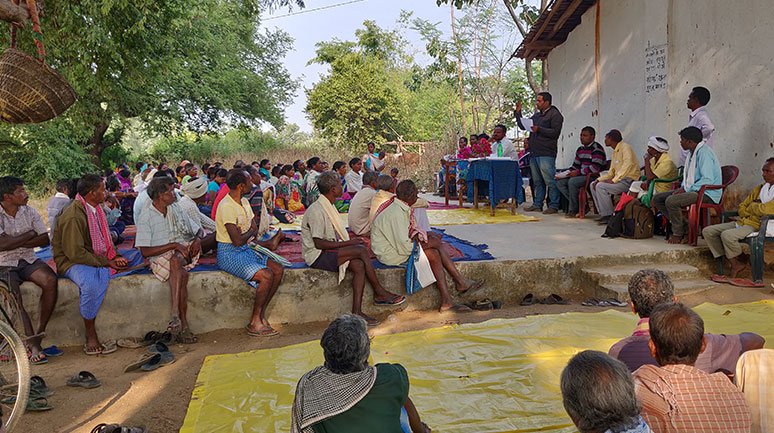Building the Organization Capabilities of Gram Panchayats-The pilot project in Jharkhand


Evolving a process-centric Gram Panchayat Organization Development framework, the Anode Lab, in collaboration with PRADAN, focussed on building the organizational capacity of gram panchayats, knowing that if the local body is capable and its members and staff are inspired to perform, it can impact sustainable change in key development spheres
Background
T HE JOURNEY BEGAN IN AUGUST 2015 with a meeting in PRADAN to explore ways to leverage Panchayati Raj Institutions (PRIs) toward sustainable change and development. Building on its extensive work in improving livelihoods across seven of the poorest states in the country, through the formation and promotion of Self Help Groups (SHGs), PRADAN has been helping villagers understand their rights and responsibilities as citizens.
However, there is a mismatch between the demands on the institutions serving the communities and their capacities (supply-side capabilities). The team at Anode Governance Lab has evolved a process-centric Gram Panchayat Organization Development (GPOD) framework, focussed on building the organizational capacity of gram panchayats1 (GP), with the premise that if the local body is capable and its members and staff are inspired to perform, it can impact sustainable change in key development spheres. The nature of actions undertaken by the Collectives in Mendha, since the 1980s, often questioned the dominant mode of life and livelihood choices and critically analyzed the development interventions aimed at attaining them. This critical and constructive perspective led them to choose the most suitable method of the collective way of life for them.
The nature of actions undertaken by the Collectives in Mendha, since the 1980s, often questioned the dominant mode of life and livelihood choices and critically analyzed the development interventions aimed at attaining them. This critical and constructive perspective led them to choose the most suitable method of the collective way of life for them
As a first step, PRADAN commissioned an exploratory study to gain an understanding of the devolution status in the states of Jharkhand and Madhya Pradesh as well as to see its impact on the actual functioning of the panchayats and how the citizens engage with these bodies. Based on the findings of this study, Anode and PRADAN were to conceptualize, design and implement a deeper engagement with panchayats.
Status of devolution:
The findings of the exploratory study for Jharkhand have been summarized in a Strengths, Weaknesses, Limitations and Threat (SWOT) format, which further informed the design of the two-year pilot. Theoretical foundation: The GPOD framework is inspired by the principles of organization development (OD), which take a holistic, systemic view of an organization and stress
Theoretical foundation:
The GPOD framework is inspired by the principles of organization development (OD), which take a holistic, systemic view of an organization and stress on the role of members of the organization as key drivers of change.
Sonali Srivastava, founder and CEO of Anode Governance Lab is a development & management professional. She set up Anode Governance Lab to pursue work towards systemic strengthening of institutions engaged in public services.
1 Developed through an action research project in Karnataka, documented in ‘Nurturing panchayats to grow, the Gram Panchayat Organisation Development project: A process document’.

